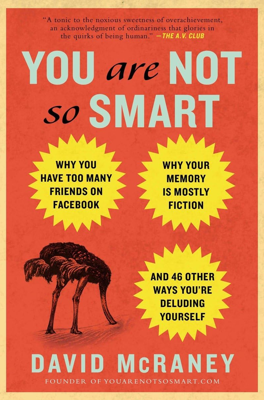Consistency Bias
Misconception vs. Truth
Misconception:
You know how your opinions have changed over time.
Truth:
Unless you consciously keep tabs on your progress, you assume the way you feel now is the way you have always felt.
Difficulty in Comparing Past and Present Selves
- You can easily recognize superficial changes over time, but struggle with deeper, introspective changes.
- Hazel Markus' Research: Reveals the malleable nature of the self and how people react to preserve their self-image when faced with new information.
- The self is both consistent and changing, shifting according to social situations while maintaining a sense of stability.
Long-Term Change in Beliefs
- Markus' Study (1965-1982): High school seniors and their parents' political opinions changed over time, with younger participants becoming more conservative, yet they believed their views had not changed.
- Participants misremembered their past beliefs to match their current views, demonstrating consistency bias.
Relationship Happiness Recall
- Scharfe and Bartholomew (1998): Studied happiness in relationships, finding that those whose relationships changed (better or worse) misremembered past feelings to align with current sentiments.
- A significant proportion of participants inaccurately recalled their initial relationship satisfaction.
Changing Opinions on Issues
- Goethals and Reckman's Study (1972): Participants' attitudes towards racially segregated busing altered after discussion, yet they believed they always held their new views.
Instant Consistency Bias
- Ariely's Study (2008): Primed Harvard students to think about honesty, leading them to cheat less on a math test.
- Signing pledges or making commitments primes individuals to act consistently with those commitments.
Influencing Behavior through Commitment
- Cialdini's Study (1978): Demonstrated that making an initial commitment led to high follow-through, even with inconvenient details revealed later.
- People strive to avoid hypocrisy by aligning actions with prior commitments.
Cognitive Dissonance and Memory Rewriting
- Consistency bias helps reduce cognitive dissonance, the uncomfortable feeling when holding conflicting thoughts.
- People revise personal history to appear more consistent and dependable to themselves.
Practical Implications
- Self-improvement and acknowledging change can suppress consistency bias.
- Consistency bias can lead to misperceptions of past beliefs and behaviors, impacting self-awareness and decision-making.
